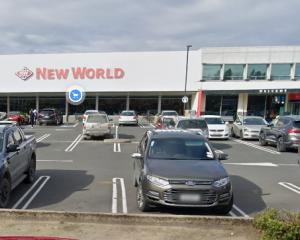
But the elements adorning a dinner table at Leslie Groves Residential Care Services, in Dunedin, are completely safe projected images which make a huge difference in the lives of residents with dementia.
They, and many other objects, are created by a Tovertafel (magic table) — a high-quality projector with infrared sensors that enable people to move the projected images around the table surface with their hands.
Facility manager Sean Kelly said it was like a games console. The concept was designed in 2015 for use in healthcare settings by Dutch medical technologies company Active Cues.
The console also contains a speaker system and a processor which projects interactive games on to any flat surface.
He said it was developed for people with cognitive challenges in care institutions, daycare, public libraries and schools.
The variant Leslie Groves was using was designed for people with dementia, people with an intellectual disability or for children with a developmental disorder.
"For instance, the autumn leaves game is designed to invoke memories of autumn.
"The fact that they can interact with the leaves — make them move with their hands and hear the rustling of the leaves — means they can have conversations around the table about what they remember about autumn.
"They can remember kicking leaves and running through leaves. For some of the residents, it is a time and opportunity to relive those memories.
"This technology is amazing for dementia care."
He said the Torvertafel also provided great opportunities for family members to engage with their parents.
"They come here and they see their loved ones who are at various stages of dementia, and the interaction between them is quite limited.
"But you put them around a table and turn the Torvertafel on, and there’s a connection straight away — there’s something they can work on together.
"That’s amazing to see."
He said the equipment cost about $16,000 and the facility was the first in the region to have one.
Seeing the results it had on the residents made it worth every cent, he said.











